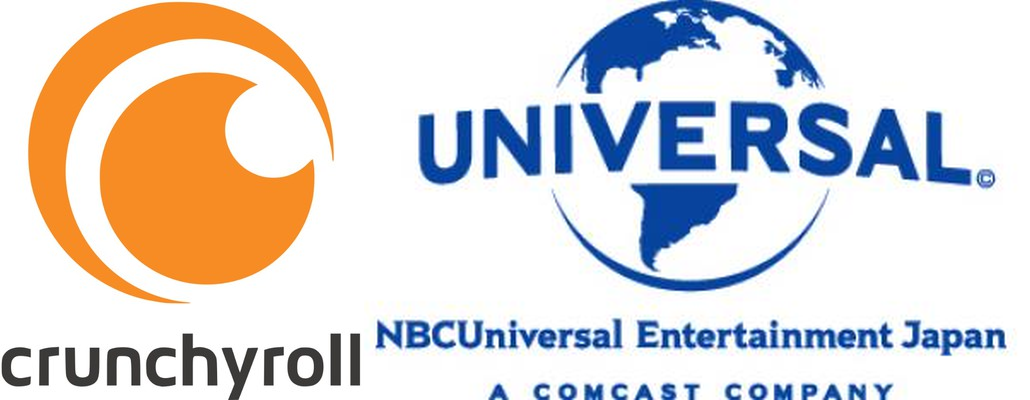Ask John: Is Crunchyroll Partnering with NBCUniversal to Make Anime a Good Thing?
Question:
I hear that Crunchyroll is partnering whit NBCUniversal to make anime. Some people are saying that anime as we know now will be changed, Americanized, like IGPX. What’s your thought about it?
Answer:
One-fifth of Crunchyroll is presently owned by Japanese broadcaster TV Tokyo, and the streaming network undoubtedly controls a significant if not majority percentage of licensed anime streaming to the global market. So seeing the partially Japanese-owned company partnering with another Japanese producer, NBCUniversal Entertainment Japan (ne: Geneon) should come as little real surprise to anyone and, in fact, may be a significant boon to international anime fans. In fact, the biggest surprise about the partnership is that it’s between NBCUniversal and Crunchyroll when NBCUniversal owns Crunchyroll competitor Hulu. Particularly, NBCUniversal Japan’s animation branch has a significant history of producing anime for international distribution. In 2004 Geneon USA representative Chad Kime revealed that Geneon USA co-produced the L/R television series, presumably with the intention of distributing it internationally. In April 2005 Geneon announced that it would produce the Hellsing OVA series in collaboration with anime studio Gonzo. The worldwide announcement was made in France at the MIP TV trade show, not in Japan. The following year Geneon partnered with Production I.G to co-finance the production of French pop singer Mylene Farmer’s music video “Peut-etre toi.”
And Geneon wasn’t the only American producer to help sponsor anime for international distribution. Without Bandai USA shows including IGPX, D.I.C.E. and The Big O season 2 would never have been produced. Manga Entertainment UK co-financed the production of 1995’s Ghost in the Shell movie. Nelvana & FUNimation partnered to co-produce and internationally distribut Madou Kiden Pandalian. FUNimation’s Space Dandy broadcast simultaneously on Japanese and American television. And the Afro Samurai anime likely would never have been produced without FUNimation stepping in to finance its production for American release. 4Kids sponsored the production of the 2003 first season of Kinnikuman: Ultimate Muscle for American broadcast. The 2000 Vampire Hunter D movie, produced with English language dialogue, was released theatrically in America before its Japanese release. Anime series including D.I.C.E. and Zoids: Fuzors and arguably films including Trigun: Badlands Rumble wouldn’t have been made if not for global distribution.
To a large degree, most of the previous anime produced with global distribution in mind have not been appreciably distinguishable from native Japanese productions. Moreover, considering current industry developments and trends, future American co-productions are an inevitability. Netflix has already partnered with Japanese studios Polygon Pictures, Science SARU, and Production I.G to create the Blame movie, Devilman: Crybaby, and B: The Beginning anime, respectively. Amazon has produced two Crayon Shin-chan web-exclusive anime series. D’Art Shtajio opened in Shinjuku, Tokyo earlier this year to become the first American-owned anime production studio in Japan.
Considering that this season alone, Japan’s TV anime broadcast season beginning in July 2017, will see the debut of over 50 new anime series, international co-productions will always remain a small minority of Japanese anime production output. Furthermore, as long as anime continues to originate in Japan under the guidance of Japanese directors, screenwriters, and editors, it will continue to “feel” like Japanese anime regardless of where its conceptual ideas originated or who financed the production. Rather than fear that Crunchyroll co-producing anime will somehow water-down or “Americanize” anime, stripping anime of its uniquely Japanese artistry and sensibilities, I think that international viewers should tentatively, cautiously anticipate future internationally targeted productions. Increased global demand for anime and involvement in anime production can and will result in the increasing production of shows that American viewers want that may not necessarily be in demand among Japanese viewers, such as sequels to anime titles popular in America and potentially an increasing number of dark, serious, dramatic and mature anime. Note that darker, mature-oriented anime series such as Ergo Proxy, Guilty Crown, Psycho Pass, Darker Than Black, Mnemosyne, Gantz, Shigurui, and Blame frequently tend to appeal more to American viewers than Japanese viewers considering how the percentage of situational comedies and lighthearted anime vastly outnumbers dark & serious anime produced annually in Japan.


